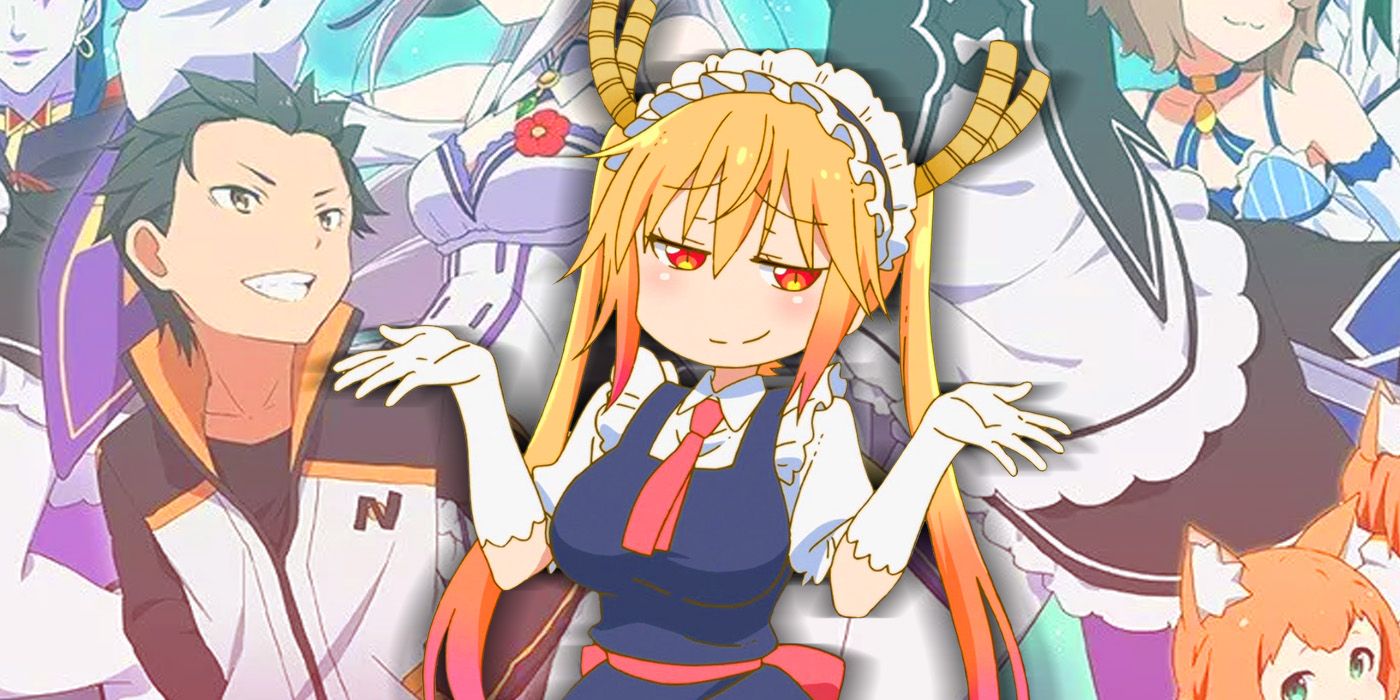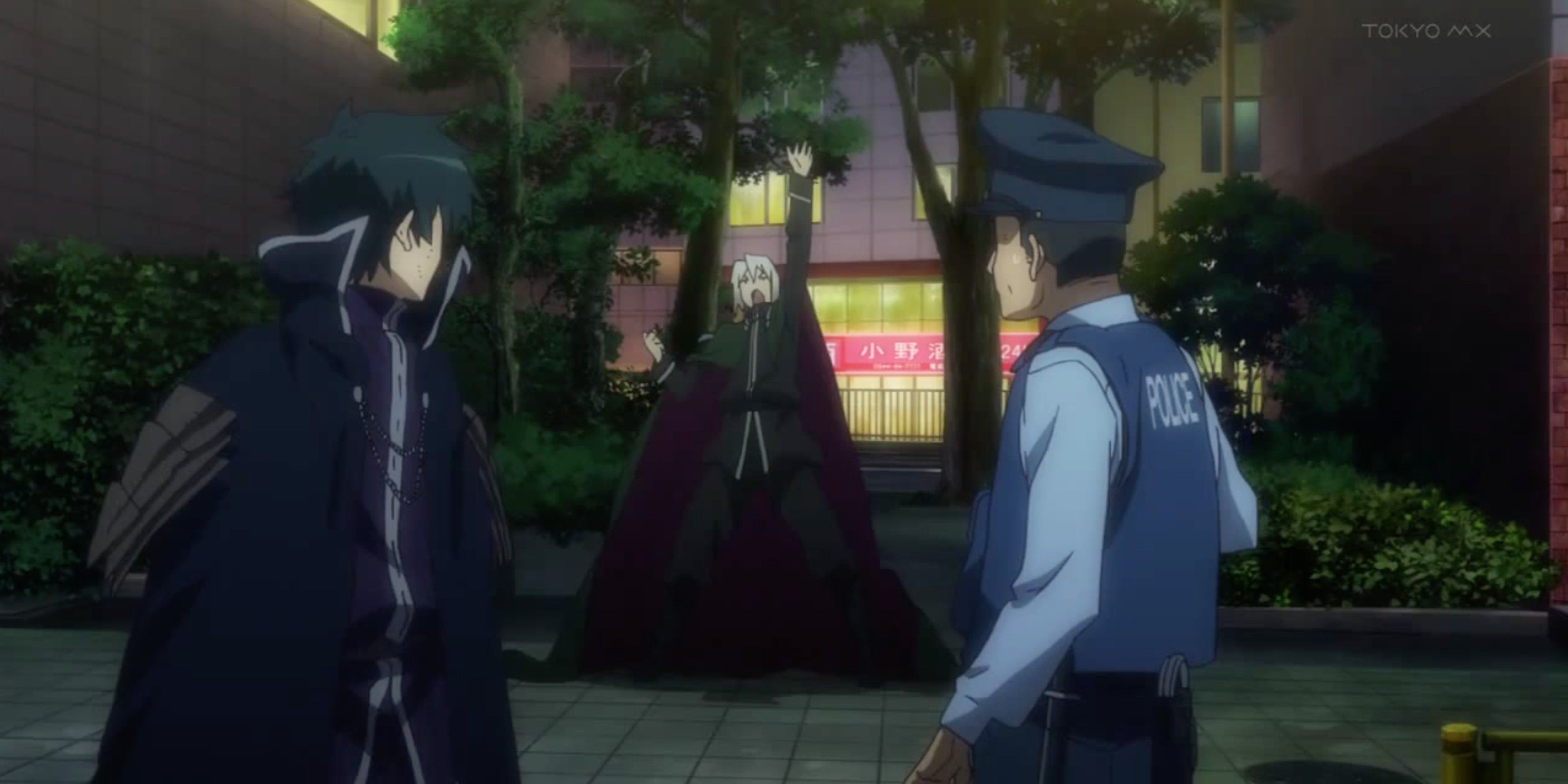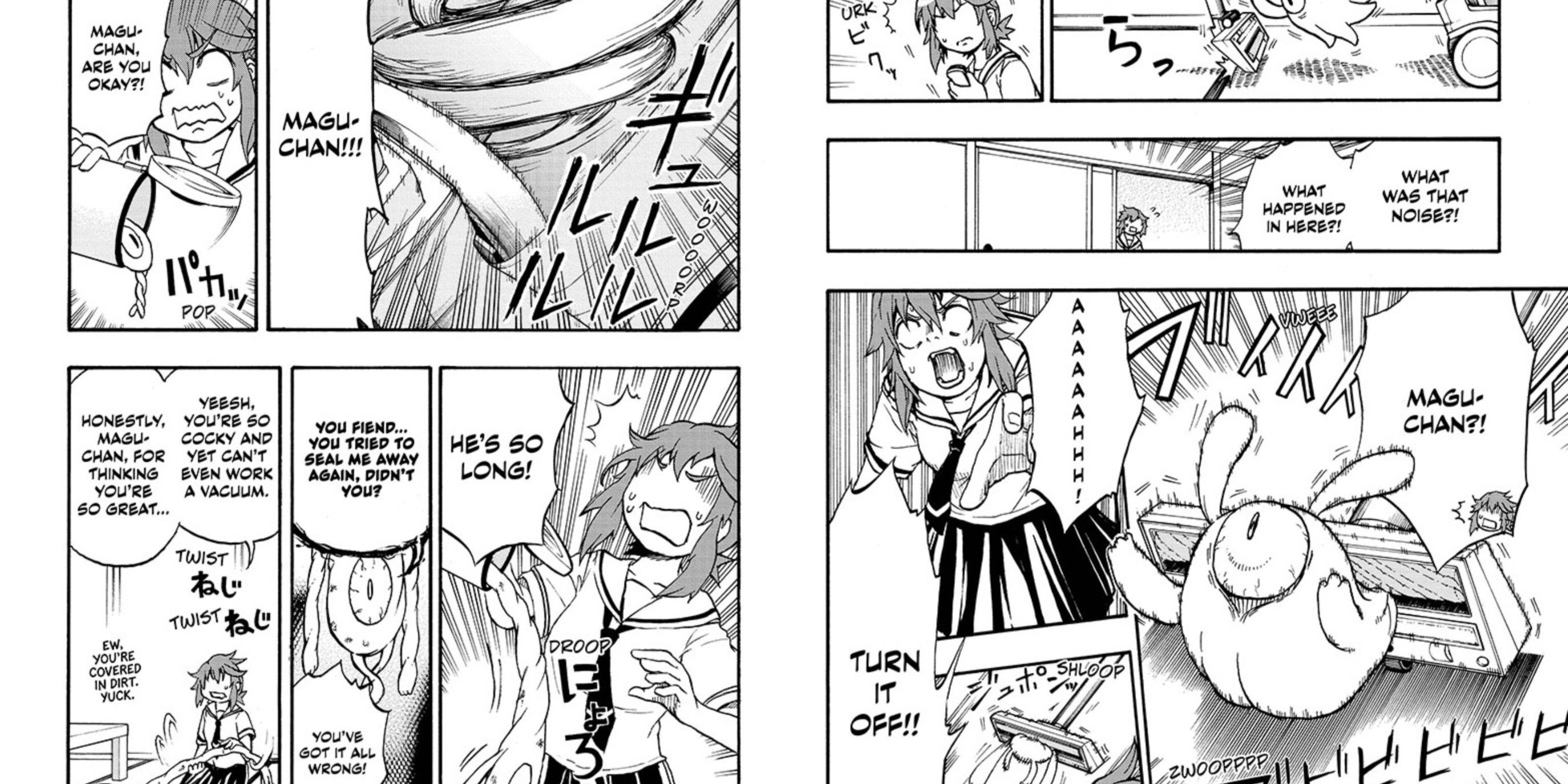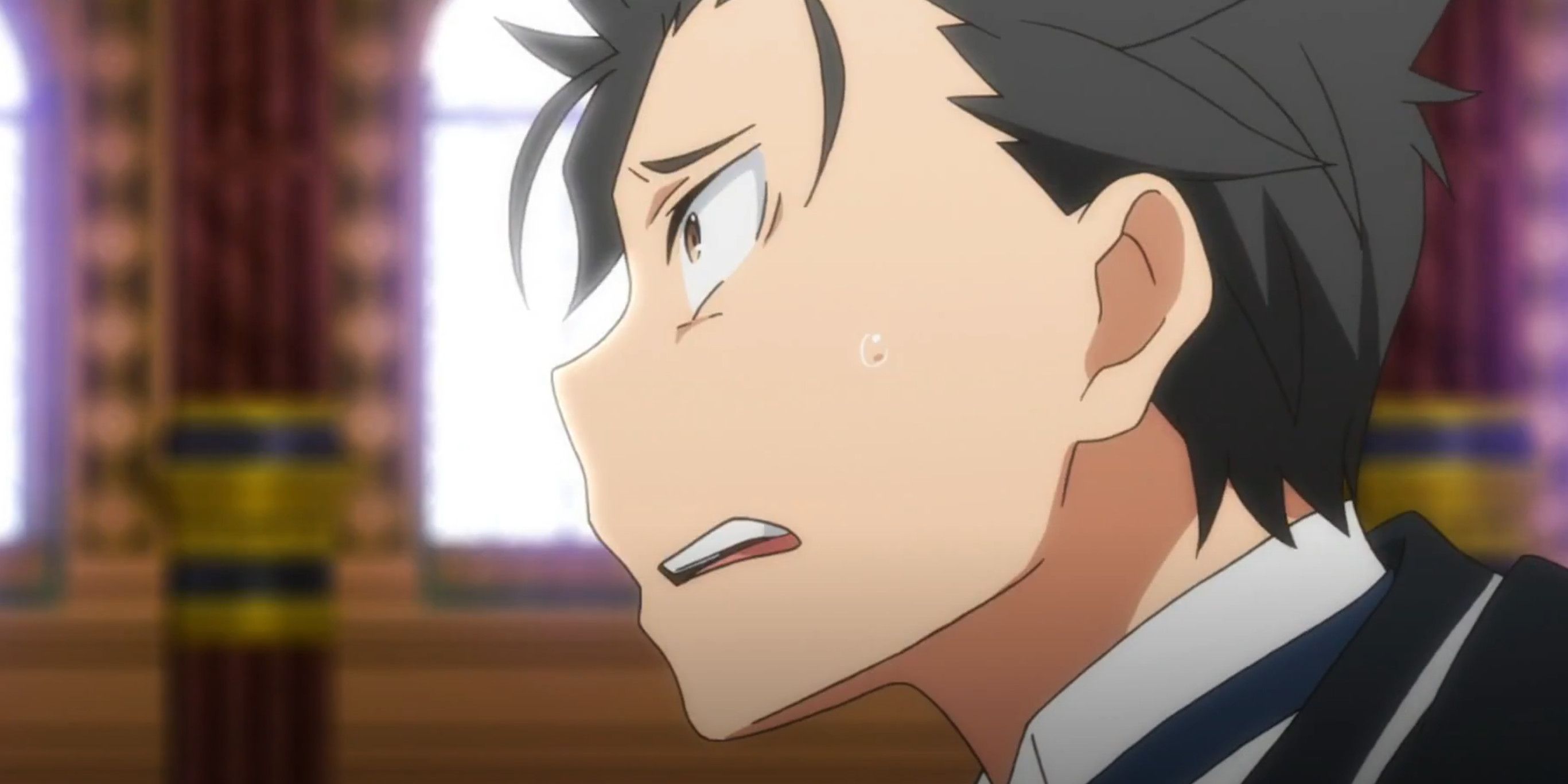Any anime fan will, regardless of whether they like isekai or not, admit that the genre has exploded in popularity over the past decade. However, popularity doesn't equal quality, and many otaku will argue isekai has experienced a decline in quality due to cookie-cutter power fantasies. However, these criticisms don't apply to all isekai. In particular, "reverse isekai" brings an element of humor by marking a sharp divide between the technology and customs of the modern-day with that of a different world.
It's a classic "fish out of water" scenario: someone gets thrown into a new world, they're not sure what its customs are and they look a bit like an idiot until they get used to it. The Devil is a Part-Timer! captures this dynamic perfectly in its opening episode. When Satan gets thrown from his spot of power along with Alciel into the modern world without his magic, the two are surprised to find that they no longer look like demons and have human appearances.
When two police officers notice them, they're not perceived as beings of incredible power. "They're cosplaying. We don't get to see them too often around these parts," one officer explains to the other. They're under the belief that the two demons are foreigners who have been robbed, and try to bring them to the police station. But Alciel dramatically declines. "Don't you dare put your hands on me! You have quite the nerve, filthy human!" he shouts, and begins to channel a spell that could have wrought incredible destruction in his old world.
The problem, of course, is that Alciel isn't in his old world. For a second, he looks insane -- even with the assumption that he's cosplaying. Moments later, they're hauled off in a police car. With a new era comes new customs and practices, and Alciel experiences this first-hand.
The Devil is a Part-Timer! isn't the only series to use this trope. Magu-Chan: God of Destruction works along similar lines, setting up the titular Magu Menueku as an ancient god from a distant past, woken after centuries of slumber after being sealed. Though the god is alive, he's severely weakened and knows very little about the modern world. Though he believes the present day to be filled with simple machines, he's in for a rude awakening as his first experience with a vacuum ends up getting him almost completely sucked in.
These aren't isolated cases. Miss Kobayashi's Dragon Maid (which will get a second season next year) creates humor with Tohru's inability to understand modern etiquette, as seen when she does the laundry by gargling dirty clothes or serving dinner by cutting off a chunk of her regenerative tail. Re:Creators features Selesia mistaking a windshield wiper for a weapon just minutes after she gets thrown into the modern world. Reverse isekai draw in an audience by highlighting a difference in culture or technology as soon as protagonists come to Earth, and it's funny from a modern perspective.
When this same idea is executed in a normal isekai, it creates awkwardness instead of comedy. Let's look at Re:Zero Episode 13 as an example, where Subaru's declaration of being Emilia's knight backfires spectacularly. Though we understand that he's referring to himself as a knight metaphorically, the other knights perceive it as an insult to their years of training and the prestige involved in order to attain knighthood. The unintentional slight to the knights' pride ends up with Subaru placed in a socially awkward spot, with Betelgeuse desperately trying to defend him with the excuse that Subaru's still unfamiliar with the world's customs. Rather than comedy, the seriousness with which knights treat their title leads Subaru to be beaten within an inch of his life.
The modern world as portrayed in anime (usually) isn't that serious. Alciel and Satan's strange clothes are met with the perception that they're cosplaying rather than hostility, while Tohru's antics are met with surprise rather than anger. The perspective of modernity allows reverse isekai to produce humorous situations, and this tried-and-true formula is likely to feature in many reverse isekai to come.




